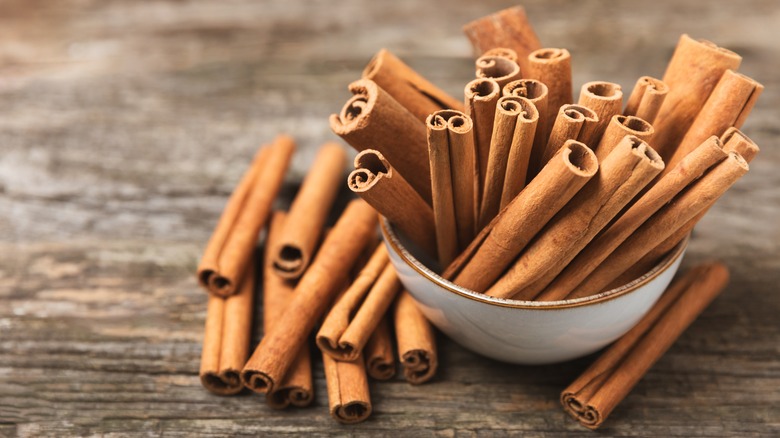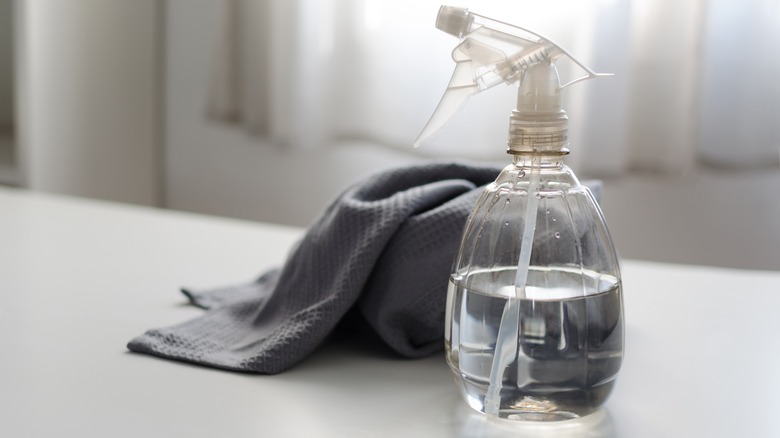How To DIY Cinnamon Oil For Cleaning Around The House
We may receive a commission on purchases made from links.
When you reach for cinnamon to use in a pumpkin spice blend or make a slice of delicious toast, it might surprise you to know that you can use it another way as well: to clean. This savory spice is one of the best scents to use in DIY cleaning products. Along with its rich, comforting scent, cinnamon also packs some great antibacterial properties for your home, which makes it a perfect addition to homemade cleaners. The best part? All you need is coconut oil and ground cinnamon to make this fragrant concoction.
Who knew that the way to remove E.coli from your surfaces was hidden in your spice cabinet? Yet the data is there: Researchers studied cinnamon's antibacterial properties on antibiotic-resistant strains and shared the results in a 2019 study published by the Journal of Advanced Pharmaceutical Technology & Research. The study shows cinnamon oil had the ability to inhibit E. coli., Staphylococcus aureus, and Pseudomonas aeruginosa bacterial strains, all of which may lead to infection. When you add DIY cinnamon oil to a homemade eco-friendly cleaner, you imbue it with an amazing scent — plus an antibacterial-fighting kick to treat some of these harmful bacterias. Below, let's go over how it works.
Making the DIY cinnamon oil
Here's how to make cinnamon oil for cleaning in your home. First, take 1 cup of coconut oil and ¼ cup of ground cinnamon. Melt the oil in a saucepan using medium heat, then add the cinnamon, mixing the two together. After it simmers for five minutes or so, remove the pot from the burner, and let cool. Once cool, store the oil in a dark-colored jar (try this double pack of amber jars on Amazon for $9.99) in your pantry or cabinet. Keeping your oils in a light-colored jar makes it more susceptible to light deterioration.
Once you're ready to start using cinnamon in your household routine, you can add this oil to your favorite DIY cleaning solutions. For instance, you can use 10 to 15 drops in a natural vinegar-based cleaner made with one part distilled white vinegar and one part water. The resulting mixture combines the vinegar's acidic qualities with the cinnamon's antimicrobial ability. It's great for use on cutting boards, tile grout, your sink, and other grimy areas of the home, though you should avoid using it on any stone or marble. As for ground cinnamon, it can add some pest-fighting power to your floors when you clean — you might want to start adding cinnamon to your mop water to deter ants, because they hate the scent.

